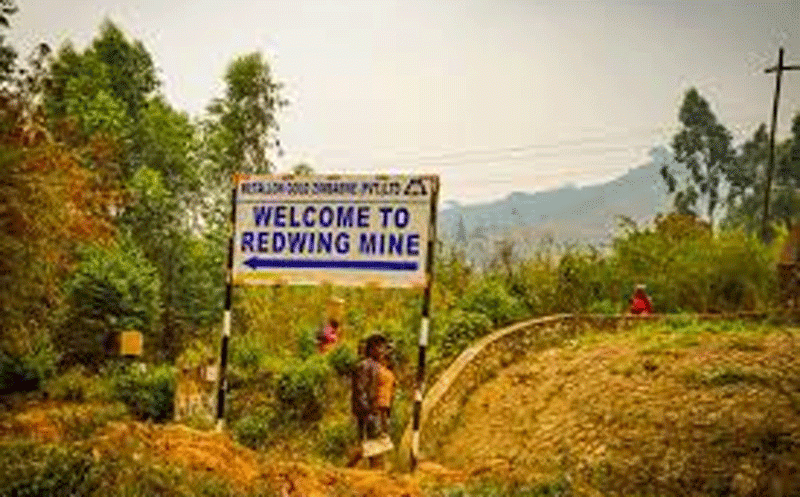
IN a dramatic policy reversal that has thrown one of Zimbabwe’s key mining assets into legal turmoil, the Ministry of Mines and Mining Development has formally endorsed the continued operations of a company that both the Supreme Court and the ministry itself had previously declared illegal.
The move effectively entrenches the presence of Betterbrands Mining at the troubled Redwing Mine in Penhalonga, deepening what observers describe as a humanitarian and environmental catastrophe in the valley.
The ministry’s stunning about-face was communicated in a letter dated July 11, 2025, signed by permanent secretary Pfungwa Kunaka and addressed to Betterbrands’ lawyers.
In the correspondence, Kunaka states that the company is “present at Redwing Mine legally” under a “Non-standard tribute agreement” approved by the Mining Affairs Board (MAB) in January 2021.
That assertion stands in stark contrast to the ministry’s own position less than a year earlier. On August 23, 2024, the same office, under the same permanent secretary, had issued a “Notice of eviction and cancellation of non-standard tribute agreement” to Betterbrands.
The eviction notice had been anchored on a landmark Supreme Court ruling from September 2022, which invalidated the corporate rescue process that first allowed Betterbrands to enter Redwing Mine.
Redwing Mine, a century-old gold operation, is legally owned by Metallon Gold Zimbabwe, which fell into corporate rescue several years ago. During this process, the MAB approved the “non-standard tribute agreement” that allowed Betterbrands to begin operations in 2021.
But the Supreme Court ruling (SC No. 96/2022) upended that arrangement, declaring all corporate rescue agreements related to Redwing void, effectively rendering Betterbrands’ presence illegal from that point onward.
- Society must change its negative perception on disability
- Entertainment galore as showbiz regains its spark
- DeMbare coach demands consistency
- A Chinese miner’s response to the raging investment question
Keep Reading
Despite the ruling, Betterbrands continued mining unabated, prompting the ministry’s 2024 eviction notice, which, like the court order, was ignored. Kunaka’s latest letter, which effectively resurrects a defunct and illegal tribute agreement, is now being viewed as a brazen defiance of Zimbabwe’s highest court.
Calls and WhatsApp messages to Kunaka and Betterbrands founder Scott Sakupwanya were not responded to by the time of going to print.
A new report by the Centre for Research and Development (CRD), titled Rising Against Impunity: The Power of Accompaniment in Penhalonga’s Fight Against Mining Injustice (October 9, 2025), exposes the implications of this policy reversal.
“What made the development more concerning was the timing of the letter’s issuance,” the CRD report stated, noting it came just weeks after Betterbrands had been allegedly banned from operating on a suspected gold-rich section of the Mutare River, known locally as “the island”.
The Zimbabwe Independent reported in February 2025 that Namib Minerals planned to invest US$300 million into Redwing and other Metallon mines over three years.
When confronted by CRD, Metallon expressed regret over the situation but distanced itself from the chaos at the mine.
The company, according to the report, said some issues were “beyond its direct control”, and claimed it was “engaged with the government to reclaim operational control”.
In response to questions from the Zimbabwe Independent, Metallon’s new investment partner, Namib Minerals, defended its record and outlined efforts to restore order at Redwing Mine.
“Thank you for your enquiry on Redwing Mine, one of Namib Minerals’ key gold assets in Zimbabwe. We appreciate the opportunity to provide context and clarity,” Namib Minerals communications executive Ranga Mberi said.
“The mine was placed under corporate rescue in 2020. This arrangement was lifted in 2022 through a Supreme Court ruling, which effectively nullified all irregular mining activities allowed during that period.”
He said it had since taken firm legal steps to end the illegal occupation of parts of the mine’s lease.
“We are engaging the Ministry of Mines and Mining Development and law enforcement authorities to restore full, safe, and compliant operations,” Mberi said.
“The company has written to relevant government departments to intervene in ending illegal activities, which have caused environmental degradation and safety risks.”
According to Namib Minerals, a directive was issued by the Provincial Mining Directorate in 2024 ordering a halt to unsafe near-surface mining.
“The directive reinforces our commitment to responsible and safe mining practices. We are engaging authorities to have it fully implemented,” he said.
Mberi described Namib as “a Nasdaq-listed company committed to the highest international standards of governance, transparency, and compliance”.
He added that: “As a public company with access to global capital, we bring responsible investment to Zimbabwe and its communities, and simply cannot afford, tolerate, or engage in any form of wrongdoing.
“Redwing Mine has no commercial relationships or supply chains linked to illegal syndicates. On the contrary, Namib Minerals has been at the forefront of efforts to end illegal, unsafe, and environmentally damaging mining activities in and around Redwing.
“It is our company that has initiated and pursued legal actions against illegal mining operations.
“Our focus now is on executing our investment strategy to rebuild Redwing Mine into a modern, responsible operation that creates jobs, protects the environment, and contributes to national and community development,” Mberi added.
He said with continued support from the government and stakeholders, they were confident that Redwing would soon return to “safe, productive operations that deliver lasting value for all”.
The human and environmental toll of the crisis is staggering. Once a thriving mining town, Penhalonga has descended into chaos, its roads cratered, its social services collapsing and its economy hijacked by informal gold dealers and smuggling syndicates.
The CRD paints a grim picture: thousands of unregulated gold processing plants, including cyanidation tanks and hammer mills, now litter the valley, poisoning rivers and farmland.
“These operations are polluting water sources, endangering livestock, damaging crops and compromising community health,” the report states, noting that most of the operations are supplied with ore from Betterbrands-controlled areas.
For the 16 000 residents of Penhalonga, this policy reversal represents more than bureaucratic confusion, it is the collapse of justice itself.











